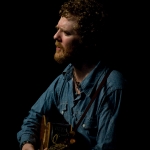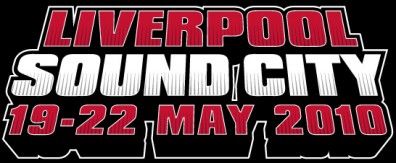Liverpool Sound City: 2010
Hard Days Night Hotel - Create Programme; LIVERPOOL SOUND CITY: TOP TIPS FOR NEW BANDS
Liverpool Sound City this year included a specific strand aimed at aspiring artists and songwriters called Create Sound City, filled with practical tips for new talent looking to make it in the music industry, with the likes of the Musicians’ Union, Music Managers Forum and something called CMU on hand to dish out advice.
For its very first year, Create Sound City kicked off with two workshops. They discussed old and new ways of launching a band, outlined the various ways you can make money from music, and finished off by providing ten tips for unsigned bands; ten things they should be doing right now. For those new bands not able to make Create Sound City this year, here are the ten tips you missed, in a friendly cut-out-and-keep format:
1. Choose a good band name, that is likely to come up in Google searches. Register your band name (or a variation of) as a dot com URL, and get the slash names with every social network going (so myspace.com/yourname, facebook.com/yourname etc). Try to have the same slash name with all services.
2. Recruit a team. You don’t just need a drummer and a bassist, you need someone who knows how to set up websites, someone who can be funny on Twitter, someone who can get you gigs. One of these people might want to become your initial manager.
3. Be clear with everyone involved what they are getting in terms of future revenue splits, i.e. if and when revenue starts to come in, are they going to get paid for past free work, will they get a cut of the money? Be very clear on who owns the copyright in any songs you write or tracks your record, make sure band members, managers and producers don’t have any unspoken expectations about future copyright ownership.
4. Join PPL and PRS (or sign up to Sentric Music, who will manage your PRS membership). Whenever your music is performed or played on the radio or in a bar, chances are you are due some money. PPL and PRS collect this money for you (the former royalties due on your recordings, the latter royalties due on your songs), but can only pass it on to you if you are members.
5. Set up your online presence - you need to be on MySpace, Facebook and Twitter, and a SoundCloud profile is increasingly popular. Other social networks are available! Decide who will manage your social network presence, someone need to keep things updated. MOST IMPORTANT, make sure you have a band website or blog and band email address, and that someone manages these. Even if your website only has links to your social network pages, you should have your own home on the internet.
6. Gig and/or DJ as much as you can. And make sure you promote and document all your gigging on your website and/or social network profiles, so outsiders (labels, journalists, potential fans) can see what a busy and popular band you are.
7. Set up a mailing list. Take email addresses at gigs, and via your website. People like Music Glue and Reverb Nation and Topspin can help you with this process. The current currency is one free MP3 in return for an email.
8. Engage, enthuse and involve your fans. Once you have your mailing list, use it responsibly. Don’t spam people, but send occasional emails, offering fans something special or, even better, involving them (ask them for feedback, ideas, input - it’s free market research and they’ll love you for it).
9. Strategically approach media and label people. Approach DJs or journalists who you really think will like your music based on what they already play or write about. Pander to their ego, tell them you love their show/panel, that you heard them play/saw them write about band x and that’s why you think they’d like your music. If you are aiming for a record deal (i.e. you want investment from a record company), approach label people in a similar way.
10. Think about self-releasing an EP or album, most bands do these days before signing a record deal. If you do, are you going to give it away or sell it? If the latter, will you sell direct using Topspin or Music Glue, or will you finding a distributor like CD Baby or Tunecore to get your stuff in iTunes, Spotify etc. Either way, this self-released album isn’t going to make you rich, it’s about building a fan-base. Make sure the music is brilliant. If you have four brilliant tracks and six OK ones, do an EP and work on making the other six songs brilliant for future release. And if some money would help at this stage, look into fan-funding via Pledge or Slice The Pie to raise some small initial investment.
Easy, though, as The Orchard’s Scott Cohen said at another Liverpool Sound City session, don’t forget there is still a little bit of magic involved in all this. “You see bands who do all the right things and it doesn’t take off, other bands, there’s a spark and suddenly they’re a buzz band. As a manager you need to know what tools are out there and how to use them, though you still need that little bit of magic which it is impossible to define.” But still, up there are ten things to be getting on which while your wait for the magic to happen.
13.15 – 14.00 : All The Young Dudes – As the record industry struggles to keep a grip are the agents and managers getting more and more powerful, with agents holding the keys to success for many artists, how can the rest of the music business really understand what they are looking for? Is it now a case of the tail wagging the dog… just who the f*ck are they? How do mere mortals get through the gates and into the lucrative world of touring…? With an agent at their side? Panellists: Rob Swerdlow – Starwood Management Ben Mawson – SSB Mathew Priest – Dodgy Brendan Long – William Morris.
14.15 – 15.00 : The Great Rock ‘n’ Roll Swindle – Are the halcyon days of publishing over?
Want to make a bucket load of cash – well write a hit song… Easy?… Not anymore! Publishing and synch has always been driven by financial return for the most part. Monetisation of copyright is why banks and VC funds have invested billions in publishing over the years. All 3 are intertwined more closely than most other sectors of the music business, yet catalogue values are worth a fraction of what they were years ago. Now this realisation is starting to dawn, and is the publisher’s luck running out? Panellists: Jaime Gough – Naitivetongue.com Spek Hussain – Fairwood Music Arabia Sergio Pimentel – ActiVIsion Andrea Von Foerster – Firestarter Music Alicen Schneider – NBC Steve Lewis – Stage 3 Music.
15.15 – 16.00: LIVERPOOL SOUND CITY: SEX, DRUGS AND ROCK N ROLL
One of the more fun sessions at Liverpool Sound City this year actually took place on Wednesday afternoon, as part of the Create Sound City programme, journalist and Goldblade frontman John Robb took to the stage to interrogate Dodgy drummer and artist manager Mathew Priest about the roll of sex and drugs in the rock n roll lifestyle.
Noting how numerous British music scenes from the sixties onwards had in part been linked to the illegal drug of the moment - whether it be speed, acid, LSD or ecstasy - Robb wondered whether aspiring bands who wanted to become part of whatever scene is in fashion will inevitably have to partake in the drugs associated with it.
Recalling the early days of Dodgy, Priest observed: “Britpop appeared on the back of the ecstasy scene, and of course drugs were around in abundance, and of course bands took part. And that’s fine. But I think young bands who get into drugs do need to think about why they are doing it. Is it because it’s fun, because it’s part of the party lifestyle? Is it to maintain that unique rush you get on stage when you’re off stage? Is it because you think it’s cool, or it will make you a better musician, or turn you into some kind of creative genius?”
While neither Robb nor Priest were attempting any “just say no” style preaching on the issue, and both conceded dabbling in drugs could make you seem cooler (though getting addicted to them, less so), both seemed keen to stress that the creative power of drugs is often greatly exaggerated. “Yes, some songs, some albums, might have been influenced by drug-induced experiences”, Robb noted. “But they won’t turn you into a genius songwriter”.
Priest agreed. “There is a tendency for people to look at musical geniuses, and at those musical geniuses’ drug addictions, and think the latter led to the former”, he said. “Doing heroin won’t turn you into a Lou Reed. Living a Keith Richards lifestyle won’t make you a brilliant guitarist. These people were talented before the drugs. Musicians who do the drugs to try to become a creative genius won’t achieve much”.
Heroin and cocaine in particular do little for creativity, both men reckoned. “There’s a lot of very bad cocaine records” Robb joked. But what about the sex? You get as much sex as you want when you’re in a band right? Priest said: “Being in a band, yes there’ll be girls. But that can be exaggerated too, and depends on how you feel about taking advantage of overly-willing fans - we were never that keen on doing that in Dodgy. But, if you’re the sort of person who finds it easy to get laid already, well, once you’re in a successful band, the sky is the limit”.
“I remember we toured with Space”, he recalled. “The guitarist in that band, he was one of those guys. I remember we came off stage and there he was, in our dressing room, getting a blow job off a girl who was wearing a Dodgy t-shirt! He was getting our blow job! But yeah, he was one of those kind of guys, and while his band were in the spotlight, he had a very happy time!”
|
|

|

The Swell Season |
LATEST GALLERY IMAGES

Gaza - Too Little, Too Late 
Israel's Weapons of War |
|
|


